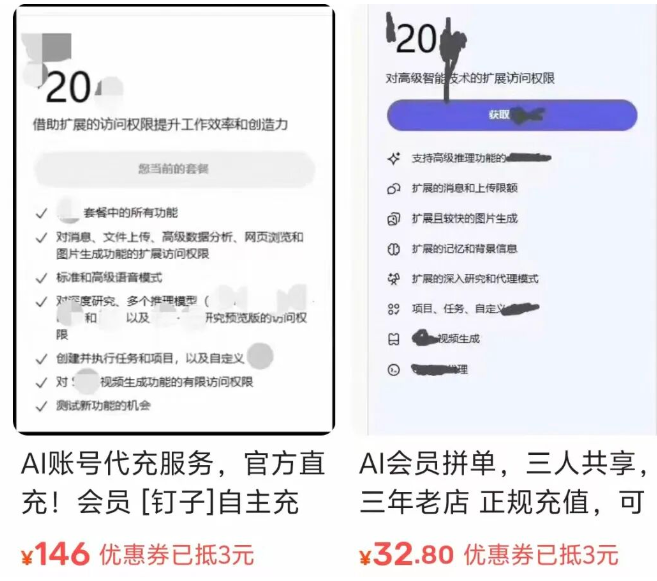The AI craze is spreading from first-tier cities to county-level towns. "Streetside photo studios" set up at night use free text-to-image tools to take portraits for passersby; "AI middlemen" in WeChat groups place group orders to resell ChatGPT accounts at low prices; in Huaqiangbei, counters mark AI earphones, AI glasses, and AI translation devices at 99 yuan flash sale prices. Behind the surge in demand, AI training programs in county areas have sprung up like mushrooms, offering two-week fast-track courses with tuition around a thousand yuan, becoming a new entry point for part-time jobs for workers.
According to incomplete statistics, over the past six months, more than 300 new AI training institutions have been registered in Jiangsu, Shandong, Hunan, and other regions, promoting the slogan "zero foundation, earning over ten thousand yuan a month." Courses usually cover AI portraits, AI copywriting, AI voiceovers, and account resale techniques, with students mainly consisting of factory shift workers, stay-at-home moms, and returning youth. After completing the training, they are added to "resource groups," where instructors daily distribute prompt packages and poster templates that can be resold, forming a "learn-sell-teach" model of town and county spread.

Industry insiders pointed out that in lower-tier cities, low hardware costs and dense personal networks make AI side businesses easier to scale quickly. "A used laptop and a commercial street are enough to start," said a representative of a chain training program, who revealed that their direct franchise stores can break even within three months, with an average of 120 new students per month. On the regulatory side, county-level city human resources and social security bureaus have begun to investigate unlicensed AI training, requiring institutions to file their teaching materials and fee items.
With models such as GPT-5.1 and Midjourney v7 continuing to reduce prices, the threshold for starting an AI business in county towns is expected to drop further. Whether workers can shift from "part-time enthusiasm" to "small business" depends on traffic channels, compliance awareness, and continuous customer acquisition capabilities.










